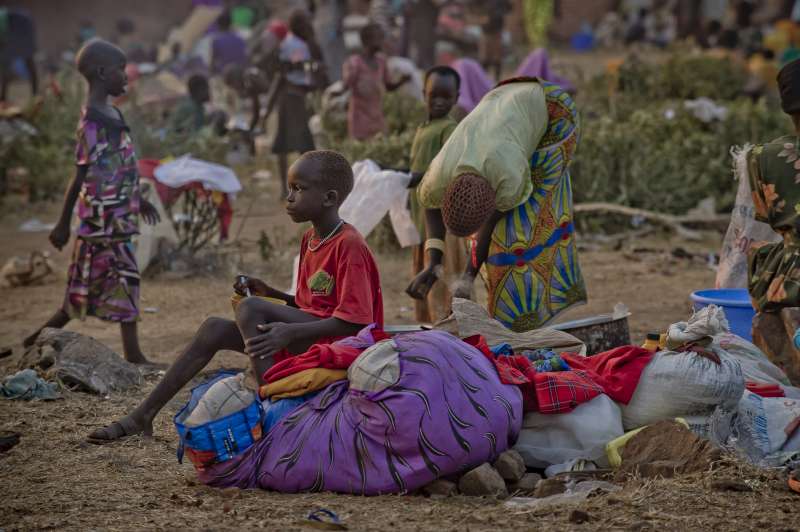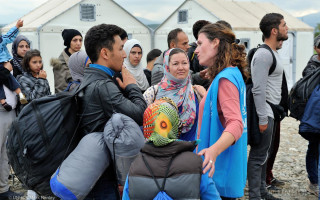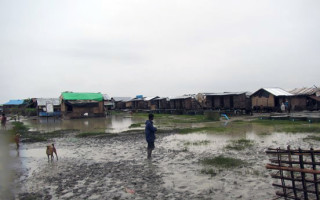
A young South Sudanese boy sits on a bundle of clothes at Dzaipi Reception Centre in northern Uganda. © UNHCR / F. Noy
GENEVA, Dec 16 (UNHCR)—From the Middle East to Africa, wars and conflict are driving an unprecedented number of people from their homes.
Meanwhile, in other places, most notably parts of Asia, floods, storms, cyclones and droughts are destroying more and more peoples’ homes and livelihoods.
As governments and the humanitarian community grapple to find effective responses, there is a greater-than-ever need to understand the root causes behind current levels of displacement.
This is the theme of the eighth annual High Commissioner’s Dialogue on Protection Challenges which began in Geneva today.
“Our world today is at a crossroads,” the head of the UN Refugee Agency António Guterres said at the opening of the two-day forum entitled “Understanding and addressing root causes of displacement.”
“From a humanitarian perspective, this juncture is defined by two ‘mega-problems’ in an environment of global insecurity: a seemingly uncontrollable multiplication of violent conflicts in an environment of global insecurity, and the pervasive and growing effects of natural hazards and climate change that are already shaping our present and will shape our future even more,” he added.
The UN High Commissioner for Refugees, who steps down at the end of December after 10 years in charge, called for an approach that looked beyond the immediate emergency response to take into account “what got us here in the first place.”
“I see this Dialogue as an opportunity to step back and look at the underlying causes as what they are –multiple, interlinked, overlapping and mutually reinforcing factors that accumulate and contribute to eventually driving people from their homes,” he said.
“It is clear that we cannot treat these causes in silos, but have to consider them together,” he added.
The number of people displaced by conflict and violence has reached levels unseen since the end of the Second World War, with close to 60 million forcibly displaced by the end of 2014.
Among current crises stoked by multiple causes is the one in South Sudan, the world’s youngest country, where 1.6 million people have been displaced from their homes either because of war that erupted two years ago or the hunger that followed, or both. More information on their plight can be found here.
In low-lying areas of Bangladesh, meanwhile, thousands of people have already been displaced by storm surges and sea level rises tied to climate change, while millions more are in danger of being uprooted in the future. Coverage of that emerging displacement is available here.
The High Commissioner’s Dialogue, which runs until Thursday, brings together Governments, intergovernmental organisations, civil society and other relevant humanitarian and academic partners.
As well as flagging a need for a more nuanced understanding of the root causes of old, new and future displacements, Guterres highlighted a greater need for making a distinction between triggers and underlying drivers of displacement.
He also flagged a need for renewed political will and leadership to protect and find solutions for those who have been forced to flee and a focus on sustainable development, good governance, rule of law and human rights to prevent the need for flight and to achieve sustainable solutions.
“Leadership and political will are essential to end the violent conflicts that have displaced tens of millions of people and to finally tame the progression of global warming,” Guterres said. “But meanwhile, development cooperation also has a key role to play in efforts to address the root causes of displacement.”





